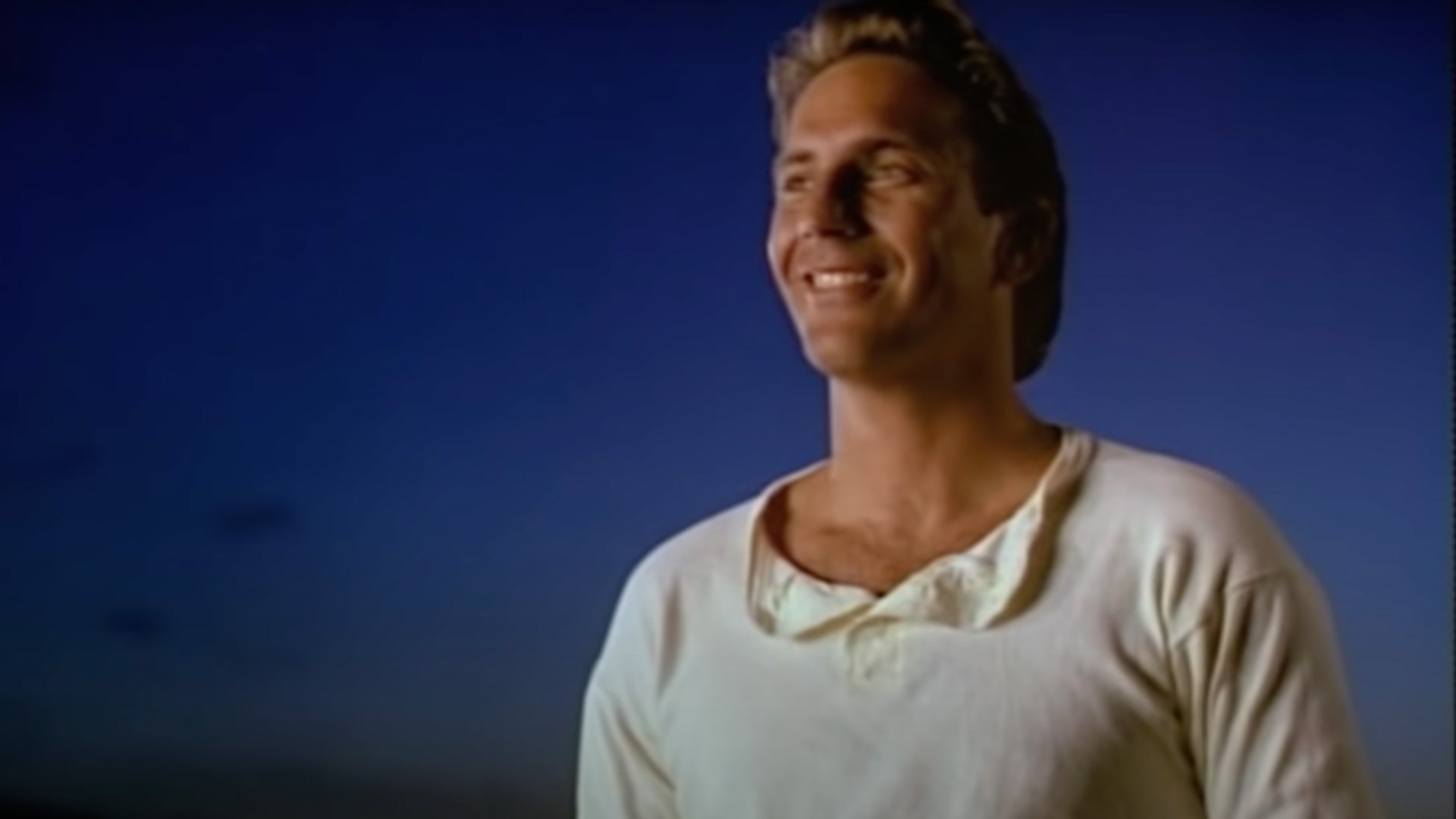Create a free profile to get unlimited access to exclusive videos, sweepstakes, and more!
Field of Dreams, Baseball, and the Enormous Potential Energy of Hope
More than 30 years after its release, the fantasy baseball classic still has an earnest power.

Baseball is a game of potential energy.
Basketball is a game that never stops moving if it can help it, and football gives you brief pauses between mammoth clashes of 22 men, but baseball is a game for the high heat of summer, when the warmth of the day makes it preferable to slow things down. It's a game of patience, of seven guys standing at various points on a diamond while a pitcher, a batter, and a catcher play a delicate chess game with a little red and white orb that could change the afternoon in an instant if it breaks the right way.
Baseball is about using all that potential energy to pick your moment. It's about what you can make happen, and perhaps more importantly, what you hope will happen. You hope that ball will hit the corner of the strike zone, exactly where you want it. You hope your line drive drops down into shallow center field instead sailing into a glove. You hope the wind is with you enough to push your would-be home run away from the foul line.
RELATED: More than ‘Field of Dreams’: 5 great baseball movies to stream as the season starts
Dreams — the good ones, at least — are also a game of potential energy. By night, they help you make sense of everything swirling around in your head, hopefully sorting through it all while you sleep. By day, they give you the chance to pick your moments, to see what you can make happen and focus on what you hope will happen. Dreams can make you into a slugger, standing in the batter's box, waiting for that perfect pitch to knock out of the park.
And sometimes, if you swing hard enough, that means you plow your corn under and build a ballpark in the middle of Iowa.
Field of Dreams, Phil Alden Robinson's beautifully earnest 1989 film — which is now streaming on Peacock — is a perfect synthesis of the potential energy in both baseball and dreaming, a monument to the idea of hopeful patience in both America's pastime and America's heartland. Even now, more than 30 years after its release, it remains a remarkably genuine portrait of the sincere power of hope, and the perfect movie for a lazy summer night, especially if you just got home from a ball game.
The premise behind Field of Dreams is so simple, and so well-known, that even people who've never seen the film are able to grasp it. Ray Kinsella (Kevin Costner), a reluctant farmer who followed his wife (Amy Madigan) to Iowa because his own family has passed on, hears a voice in his cornfield that he can't explain. Eventually, he decides through sheer intuition that the voice is telling him to build a baseball field out in the corn so that, through some strange magic, Shoeless Joe Jackson (Ray Liotta) can return from the great beyond and play ball one last time. His wife Annie supports him in this quest, even as it bleeds them dry financially, and eventually Shoeless Joe does indeed appear, setting off a chain of events that changes the Kinsella family forever.
The film's first act hinges on Ray's choice to build the baseball field, the implications of it, and what happens when his dream actually pays off. But whether it's the film's age or the simple flattening of a concept through pop culture repetition, it feels like many people have forgotten just how far Field of Dreams goes beyond that initial act, that first instinct to trust the voice. The voice, a metaphorical manifestation of Ray's daydreaming about the life he didn't get to live, keeps talking. It keeps reminding Ray not just of his love of baseball, but of his father, a man who became a parent at an old age, and who Ray never really got to know. It reminds Ray of a famous activist-writer (James Earl Jones) long since self-exiled from the realm of publicly caring about anything, reminds Annie of her own activist past, and engages their daughter Karin (Gaby Hoffmann) in the raw power of dreaming in ways she wasn't before.
RELATED: Scientists confirm rapid eye movements happen because we’re looking at our dreams
All of which is to say that the famous line, "If you build it, he will come," is only the first dream, the first swing at the first pitch that will eventually lead to the film's emotional grand slam. There's a lot of potential energy living in that first dream, like the first at-bat in an inning of baseball, but in the film as in the game, it's about picking your moments. Ray's first swing, the leap of faith of building the faith, has to be followed with patience. He has to wait for the next signal, and when it comes he has to pick his moment and take yet another swing.
That's the real dramatic arc of the film, much like the dramatic arc of a really good ball game. Baseball is all about potential energy and unleashing it at the right moment, which means it's also about knowing when to hold that potential energy back for the next pitch or the next inning. Field of Dreams is a movie about a family who have to learn how to harness their own potential energy, first through getting it back after settling into a mundane life, then through taking those big swings when it really counts. There are plenty of payoffs along the way, but the real emotional power of the film doesn't kick in until the bottom of the ninth. The Kinsella family, even if they don't realize it, inherently understand that's how their dreams work, because that's how baseball works. That understanding, and their ability to act on it, makes the film not just a great movie about baseball, but a great movie about the greatest form of potential energy: hope.
Field of Dreams is now streaming on Peacock.


























